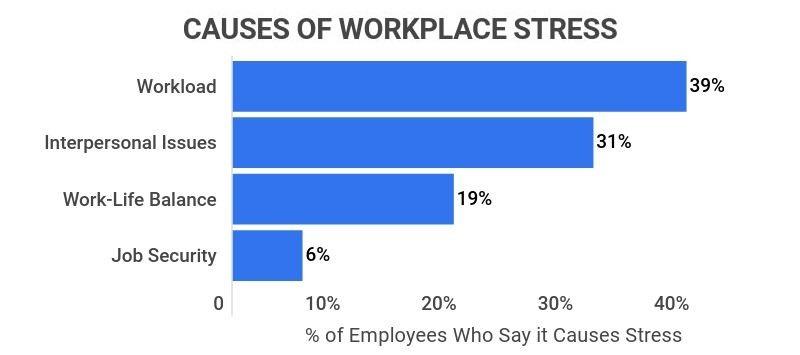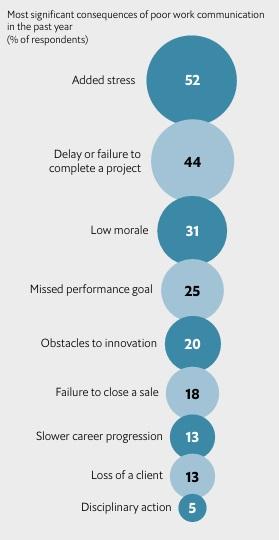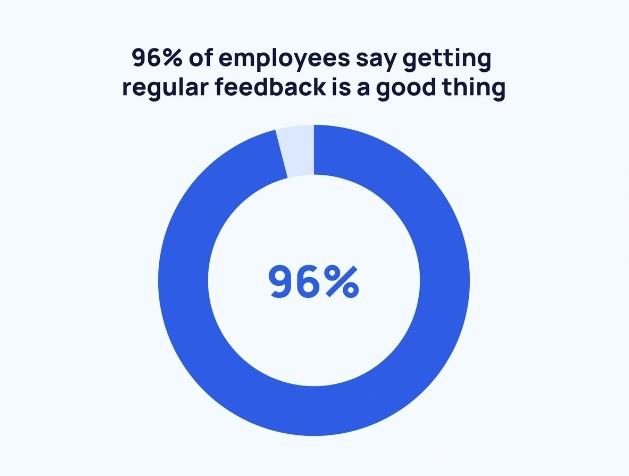How To Improve Delegation As An SEO Manager (7 Expert Tips)
Daniel Trick
Nov 13, 2024
7 min read
As an agency owner, your to-do list can seem never-ending. It can feel like you’re constantly swamped.
That’s why you need to know how to delegate.
Learning to delegate effectively can be the difference between feeling overwhelmed and running a smoothly operating agency.
It isn’t just a nice-to-have skill. It’s essential.
In this blog post, we’ll share expert tips to help you delegate more effectively, free up your time and, ultimately, help your agency thrive.
We’ll cover:
- What delegation is
- Why delegation skills are important
- 7 expert tips on how to delegate tasks
What Is Delegation?
Delegation is the process of assigning tasks to other people in your team. You transfer the responsibility for completing specific activities from yourself to your team members.
The goal is to distribute your workload so that you can focus on higher-level strategic tasks that demand your unique expertise and attention.
Delegation can empower your team. Proper delegation can help your employees to develop skills and take on new responsibilities.
This can boost job satisfaction and help you build a more capable agency team.
What it’s not is just handing off all your work…
Why Are Delegation Skills Important?
Every effective leader needs delegation skills. Here’s why:
Efficiency
Delegating work helps you manage your time more efficiently.
By assigning tasks to your team, you can focus on more strategic tasks that will grow your agency.
It gives you more time to work on activities that require your expertise, like business development and client management.
Team Development
Your employees want to see a future at your agency and a path to develop their careers. This is key to keeping staff motivated.
When you delegate tasks, you allow team members to learn and grow.
They can build new skills and gain confidence in their skills. This benefits your SEO team and strengthens your agency as a whole.
Workload Management
Delegation helps you to distribute the workload. Instead of being overwhelmed by too many tasks, you leverage your team’s skills.
Delegating helps you avoid being overworked and suffering from burnout.
In a recent study, workload was ranked as the most common cause of workplace stress.

Sharing your tasks with your team helps you maintain a better work-life balance. You can dedicate time and effort to each task without being overwhelmed.
Improve Quality of Work
You won’t be the best person for every task at your agency.
Each person has unique skills and expertise. By delegating tasks, you can leverage your team’s strengths.
It’s about choosing the person most suited for the specific task.
For example, you might not be the most experienced person on your team when it comes to technical SEO.
Delegating technical SEO tasks to a team member who excels in that area can improve the quality of work produced.
7 Tips to Improve Your Delegation Skills

Here’s how to delegate more effectively in your SEO agency:
1. Identify Tasks to Delegate
The first step in a successful delegation process is knowing which tasks to delegate.
Start by making a list of all the tasks you perform regularly. This includes your daily tasks and occasional responsibilities, such as client presentations and financial reviews.
Next, categorize the tasks based on their importance and priority.
High-priority tasks typically require your expertise or decision-making. These are tasks like key client meetings, hiring new employees, and strategy planning – the things that directly impact your agency’s growth.
Low-priority tasks are more routine and repetitive. They include things like campaign deliverables and administrative tasks.
These are the tasks you should consider delegating first.
You also want to think about the tasks that fall outside your skill set.
If you’re running an agency, you don’t want to spend your time and energy mastering infographic design or technical SEO. Instead, it makes sense to delegate these tasks to someone who already has the required skills.
Work with your strengths and delegate your weaknesses.#Leadership
— Vinny Ganju (@vinnyganju) January 31, 2022
2. Choose The Right People
Choosing the right people for the right tasks is one of the most important delegation skills.
Some tasks require more experience than others.
For example, dealing with canonical tags can be tricky and can cause many issues if it goes wrong. Someone with technical SEO experience is best suited to this type of task.
A more routine task like creating meta descriptions can be assigned to a less experienced team member.
Try to match the complexity of the task with the team member’s experience level.
You also need to make sure the person has the capacity to take on the additional responsibilities.
Delegating tasks is also an opportunity to develop the skills of team members. Think about which tasks align with the interests of team members and would ultimately help their professional development.
3. Provide Clear Instructions
Clearly communicating instructions is essential for effective delegation. It minimizes the risk of mistakes and misunderstandings that could waste your team’s time and effort.
In a recent survey, added stress and failure to complete a project were ranked as the most significant consequences of poor workplace communication:

The best way to communicate the steps to complete tasks is by creating standard operating procedures (SOPs).
SOPs are written instructions that detail the step-by-step process for performing a task. They include all the necessary steps to complete the task and any required tools and resources.
It gives team members a guide to refer to if they need to check any details.
Before trying to SCALE your agency…
Make sure to have ALL these in place:
– Systems
– Processes
– SOPsNew client?
– You know EXACTLY what to doNew team member?
– They know EXACTLY what to do— Sean (@seanb2b) May 14, 2021
You should also provide a clear deadline for when you expect the delegated work to be completed.
Make sure the deadline is realistic and can be achieved without impacting the team member’s other responsibilities.
4. Trust Your Team
Once you delegate work, give your team the space to handle it.
Don’t be one of those annoying managers that tries to micromanage everything.
If you’ve picked the right person, they should have the skills and knowledge to complete the task.
Constantly checking in can undermine your team’s confidence.
Leadership is not about pulling people to follow your path. It’s about shining enough light for them to find their own route.
Bosses aim to wield power. They issue commands to maintain control.
Leaders strive to empower. They delegate authority to unleash potential. pic.twitter.com/gT5rhoKecD
— Adam Grant (@AdamMGrant) June 28, 2023
Giving your team some autonomy is key to building trust and showing that you believe in their abilities.
This can go a long way in boosting morale and motivation.
5. Outsourcing
Some tasks may require specialized skills beyond your team’s current capabilities.
For example, link building and content creation are essential components of SEO strategy, but they also require a unique skill set.
Some tasks are time-consuming and pull your team away from more important tasks and responsibilities.
Outsourcing these tasks can be an effective way to manage your agency’s workload.
Just like when you delegate internally, you need to provide clear instructions to your outsourcing partners.
Define the objectives, desired outcome, and deadlines. If you’ve created SOPs, you can pass these on to your partner to ensure they perform the task to your expectations.
If you’re thinking about outsourcing, check out our guide on how to outsource SEO for expert tips on avoiding the common mistakes.
6. Follow Up
There’s a big difference between following up and micromanaging.
When you follow up, you’re checking in to ensure everything is on track and offering support when needed.
Micromanaging is when you’re constantly looking over your team’s shoulders and scrutinizing every detail.
Effective leaders don’t feel the need to micromanage because they know their staff are the experts. They know their role is to sometimes mentor, but always support and encourage those they lead. Effective leadership is about getting the best out of those you lead!
— 𝐁𝐫𝐚𝐝 𝐉𝐨𝐡𝐧𝐬𝐨𝐧 (@DrBradJohnson) October 24, 2022
Make sure you’re available to provide support throughout the delegated task.
Encourage your team to reach out if they have any issues or need something to be clarified. This can help reduce the risk of any mistakes or wasted effort.
You can also use project management tools to monitor progress of any tasks that you delegate. These tools make it easy to manage your agency workflows and meet deadlines.
Learn how to manage the projects at your agency more efficiently in our guide on SEO project management.
7. Provide Constructive Feedback
Feedback is an essential part of the delegation process. It involves recognizing what your team members did well and identifying areas for improvement.
The vast majority of employees recognize the importance of feedback. A recent survey found that 96% of employees believe regular feedback is a good thing:

Try to provide feedback as soon as possible after the task is complete.
The task will still be fresh in the team members’ minds, and they can quickly make adjustments and improvements.
When giving feedback, be specific. Help your team to understand exactly what they did right and what they need to improve.
For example, you might praise how they found highly relevant search queries when conducting keyword research. However, you might also offer constructive criticism on finding a better balance between search volume and competition.
Feedback is a two-way street.
You should also encourage team members to provide feedback on how you delegated the task.
This can help you improve your delegation and communication skills.
Drive Agency Growth with Smart Delegation
Delegation is a vital skill for agency owners. It helps you manage your time better, develop your team’s skills, and lets you focus on the most important aspects of your business.
It’s not just about getting the work done.
Effective delegating is key in building an agency workplace where everyone can contribute and deliver their best work.
Your team becomes more capable, and your clients see better results.
Become a Pro at SEO
Join 65,000 others and learn the secrets to SEO success with our weekly blog posts.
